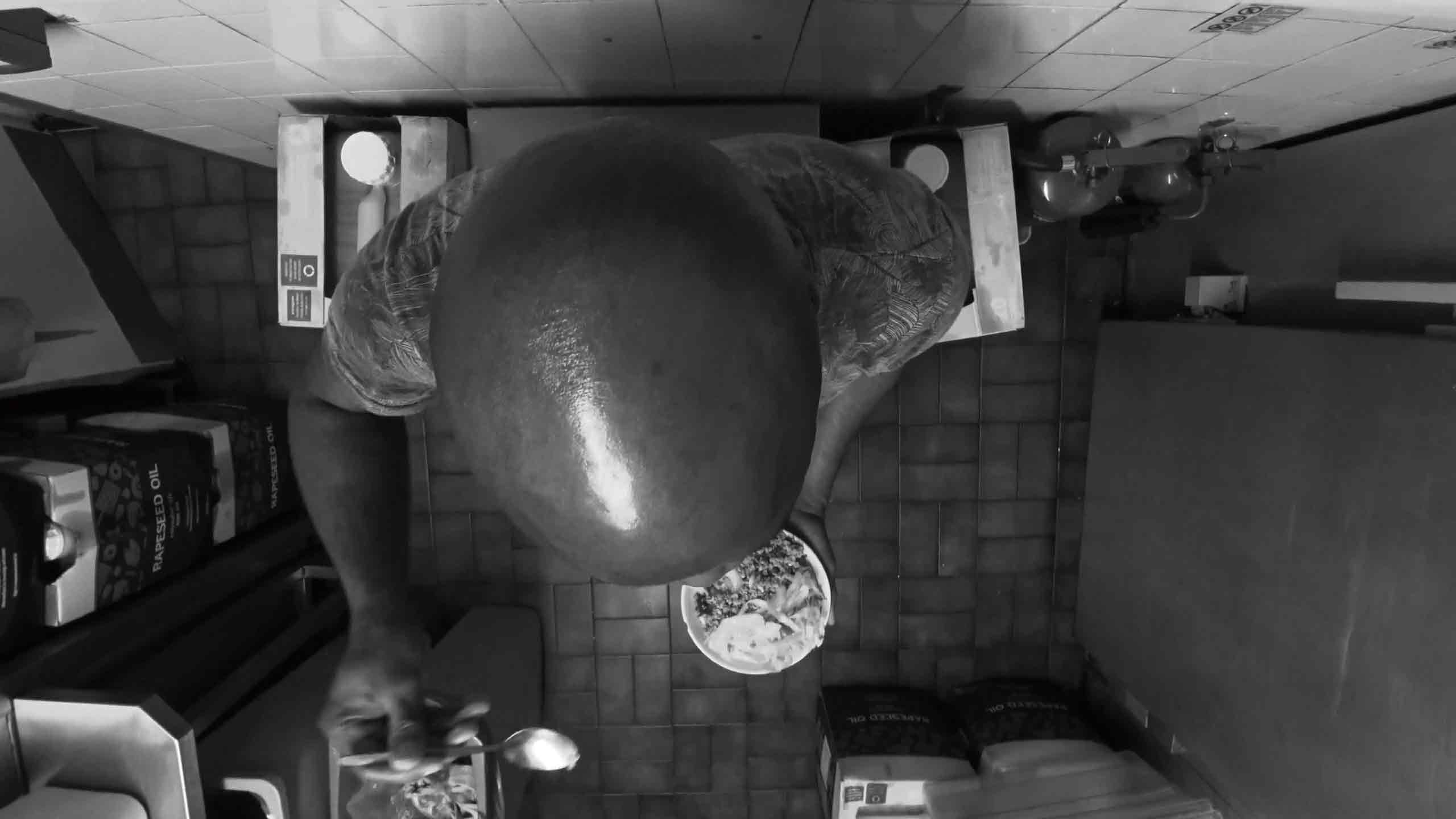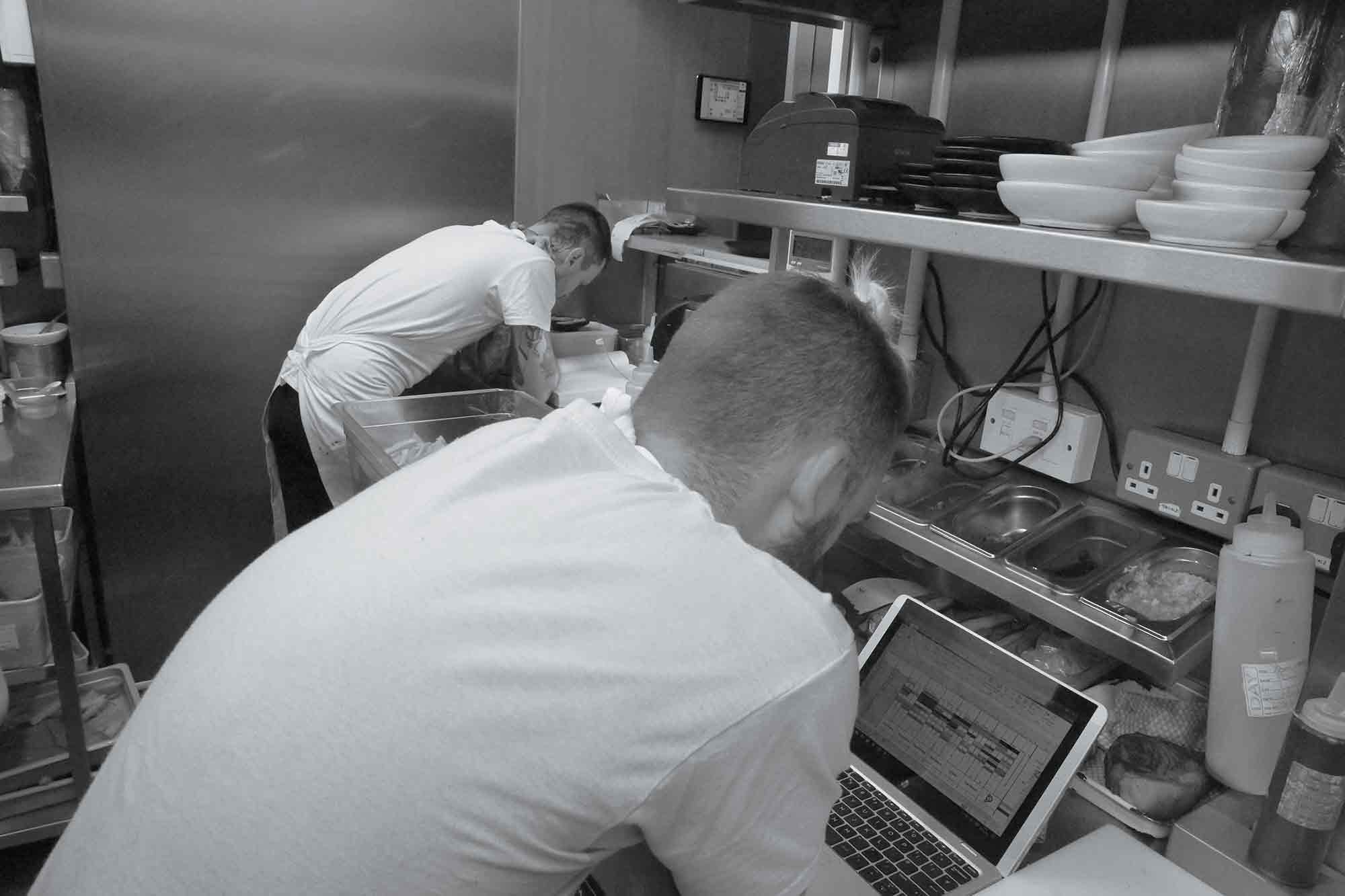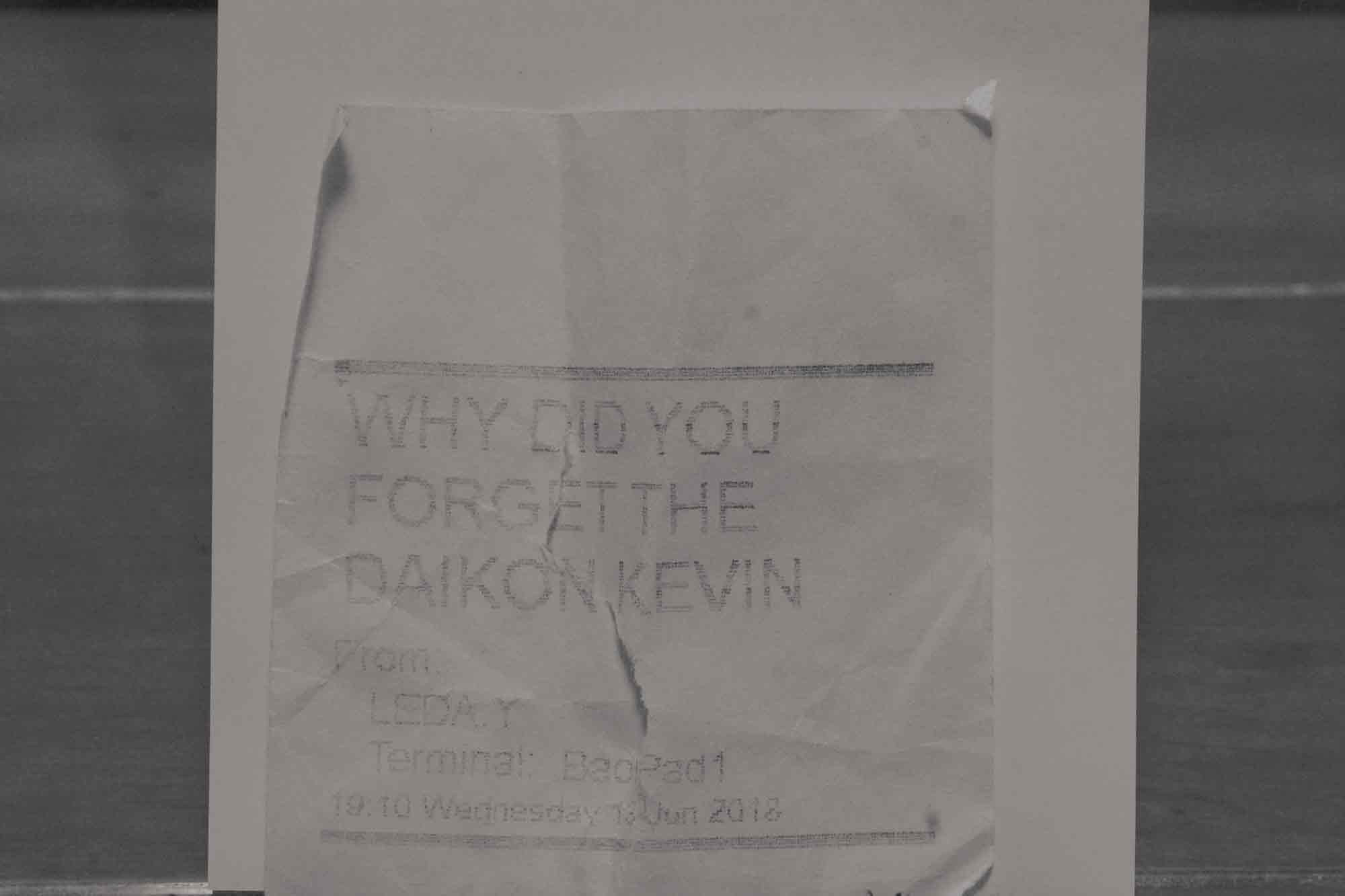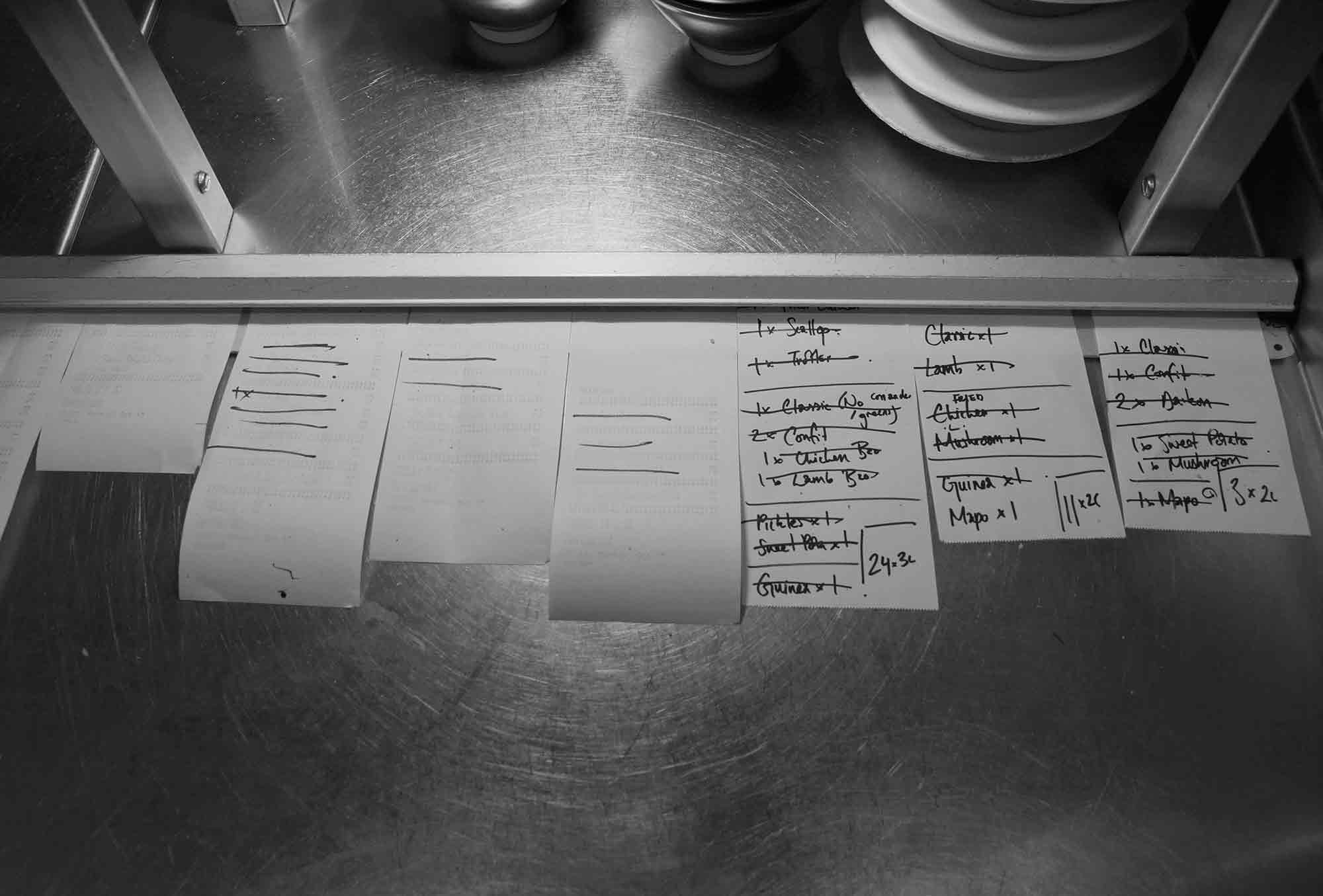- Login
Critical Spatial Practice






‘I am trying to go beyond the immediate economic cause and to consider what pleasure it can give anyone to think of men swabbing dishes for life. For there is no doubt that people—comfortably situated people—do find a pleasure in such thoughts.’ George Orwell, Down and Out in Paris and London, (1933).
The Pass is a video work that pays homage to those who contribute their labour and skills to the production of food in the hospitality industry. ‘The Pass’ derives from a kitchen term referring to the space between the front and the back of the house, where transactions of orders and plates take place.
The Pass evolved through reconfiguring and transposing the dynamic that such transactions create; revealing the physicality that embodies both mental and physical exploitation of those who work ‘The Pass’ – experiencing its embedded surveillance and management techniques – and how the owners benefit from imposing such techniques on their employees.
Kai-Wen is interested in the codes and gestures of city dwellers, and explored the complexity of the hospitality industry while working on a minimum wage at JKS, an award-winning restaurant group in London. Besides working as a commis chef, Kai holds a Bachelor’s degree in Architecture from Shih-Chien University and received his MA in Situated Practice at The Bartlett, where he attended Prof. Jane Rendell’s Site-Writing class. Kai has worked as an architect at Kaohsiung and Taipei, he is currently undertaking training for his upcoming military service in South America.
Project Given Table (2018): https://www.situated-practice.net/kaiwen-chen
The project aims to reveal the configuration of engaging in a labouring condition, and how it models workers’ behavior, raising, in Giorgio Agamben’s terms, the notion of the apparatus. At the same time, the approach which the project adopted addressed the nuanced space between anthropological field work, performance art, and architectural site documentation.
George Orwell, Down and out in Paris and London, (1933)
Barbara Ehrenreich, Nickel and Dimed: On (not) getting by in America (2001).



































































